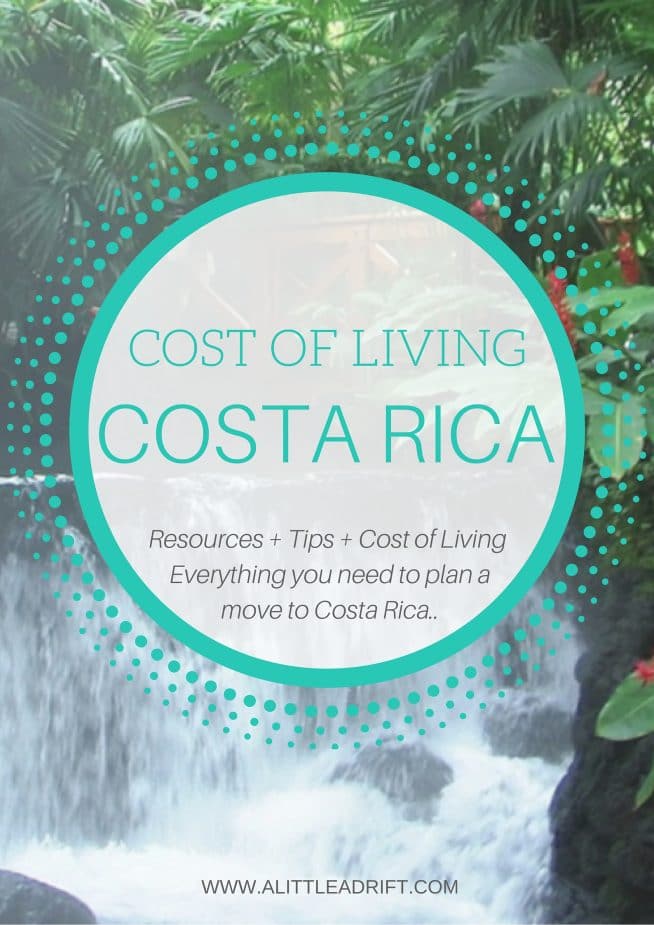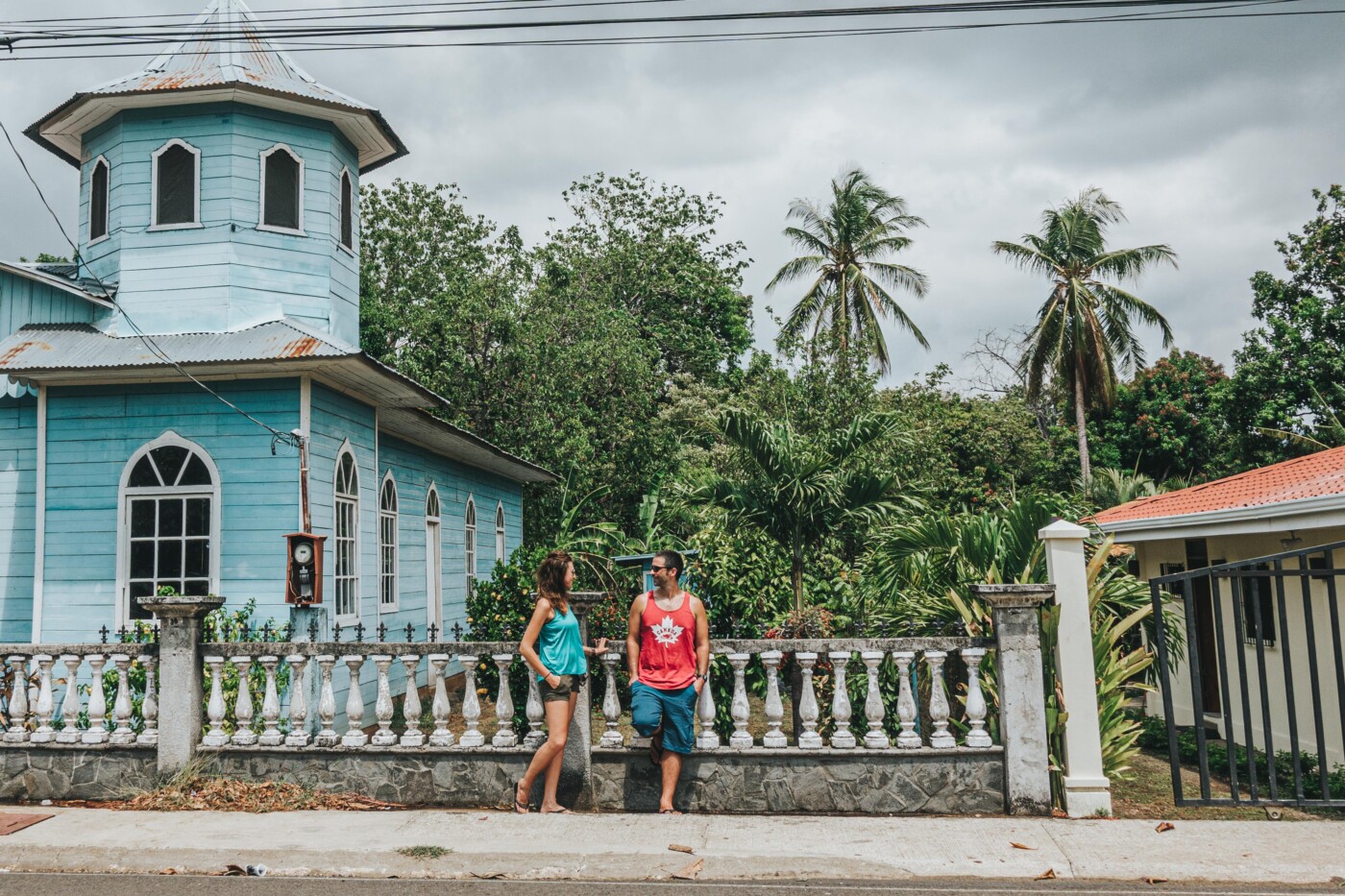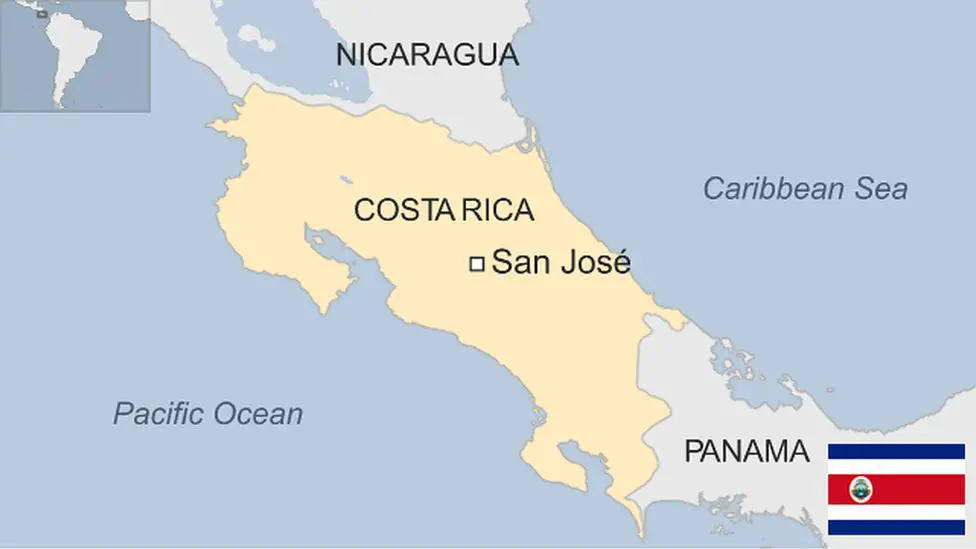Retiring in Costa Rica…What You Should Know
Imagine sitting on your porch, sipping on a freshly brewed cup of Costa Rican coffee, and taking in the breathtaking view of lush green mountains and vibrant landscapes that stretch as far as the eye can see. You’re greeted by tropical birds singing their morning serenade, while warm sunshine caresses your face. This isn’t a scene from a dream vacation, but rather your new reality as a retiree in Costa Rica.
Costa Rica has long been touted as one of the best countries for retirement, attracting thousands of expats with its stunning natural beauty, friendly locals, and affordable living costs. Retiring in Costa Rica may sound like the perfect paradise, but navigating the process can feel overwhelming, especially if you’re not familiar with local customs and regulations. In this blog post, we’ll delve into what you should know about retiring in Costa Rica, so you can make an informed decision and smoothly sail through your golden years in the land of Ticos. So, buckle up and let us guide you through the ins and outs of the pura vida lifestyle, and help transform your retirement dreams into reality.

1. Average Cost to Retire in Costa Rica
Paragraph Title: Average Cost to Retire in Costa Rica
Retiring in the beautiful country of Costa Rica has become an increasingly popular choice for many Americans, thanks to its stunning landscapes, warm climate, and relatively low cost of living. According to data from Numbeo (March 2022), the average monthly cost of living in Costa Rica, excluding rent, stands at around $600 per person. This means a couple could comfortably live on around $1,200 per month, before rent. If you were to add rent for a one-bedroom apartment in the city center, this would bring the total monthly living expenses to roughly $1,700.
Of course, factors such as the chosen lifestyle and location will affect the actual cost of retirement in Costa Rica. For instance, those who opt for a more luxurious lifestyle, including air conditioning and frequent dining out, will face higher expenses. However, the country’s lower cost of living compared to the United States means that retirees can make their savings stretch further, particularly if they choose to live modestly.
By shopping at local markets and cooking at home, it’s possible to spend less than $200 a month on food. Additionally, housing costs will differ depending on whether retirees choose to rent or buy a property. Rents for a city apartment can range from $330 to $750 per month, while a reasonably priced home may cost around $75,000 to purchase. Overall, Costa Rica offers a fantastic balance of quality of life and affordability for those looking to retire in paradise. [1][2]

2. Emigration Programs for Retirees
Emigration Programs for Retirees
When planning to retire in Costa Rica, it’s essential to choose the right emigration program to suit your retiree status and financial capacity. There are three primary programs available to retirees: the Pensionado, Rentista, and Inversionista Programs.
The Pensionado Program is designed for pensioners and retirees with a fixed monthly income. To qualify, you must have at least $1,000 per month from a pension or retirement fund, which you’ll need to transfer into a Costa Rican bank account and convert into local currency. This program is popular among American retirees due to its affordability and simple requirements.
The Rentista Program could be a suitable option for those without a fixed retirement income but who have substantial savings or assets. To qualify, you need to prove a current cash balance of at least $60,000, or a monthly income of $2,500 for two years. Similar to the Pensionado Program, funds must be transferred into a local bank to be accessed and spent during your stay.
Lastly, the Inversionista Program requires an immediate investment of at least $200,000 in an approved Costa Rican business or property. This program is suitable for those looking to make a significant financial commitment to the country.
Each program comes with a $250 application fee and additional costs for document authentication, translation, and notarization. Furthermore, you’ll need to renew your program status every two years at a cost of $100 per renewal. After three consecutive renewals, you can apply for permanent resident status, allowing you to fully enjoy your retirement in Costa Rica. [3][4]

3. Lifestyle and Cost of Living in Costa Rica
Lifestyle and Cost of Living in Costa Rica can vary greatly depending on the location and individual preferences; however, there is undoubtedly something for everyone in this biodiverse tropical paradise. Costa Rica is known for its laid-back and leisurely pace of life, offering retirees ample opportunities to enjoy their newfound free time. With more winter sunshine than Hawaii or Florida, the climate in Costa Rica provides a perfect environment to enjoy outdoor activities every day throughout the year.
Costa Rica’s cost of living is not the lowest among Central American countries, but many retirees find it to be the best overall value due to its superior healthcare, modern infrastructure including high-speed internet, and vast array of available products and services. The key to making the most of your retirement in Costa Rica is determining where you want to live, and tailoring your lifestyle accordingly to fit your budget.
For example, in coastal areas like Tamarindo and Flamingo, housing options range from more affordable options such as small homes or condos to luxurious beachfront estates. Monthly expenses for retirees living comfortably in Costa Rica can start at around $2,000, which includes housing, healthcare, transportation, and other living expenses.
Beyond the cost of living, retirees in Costa Rica often enjoy a healthier lifestyle, thanks in part to the abundance of fresh produce and outdoor activities. The country even boasts a “Blue Zone” within the Guanacaste Province where residents have a significantly higher average lifespan.
In conclusion, retirement in Costa Rica offers a diverse and fulfilling lifestyle with a favorable cost of living. The key to enjoying this tropical haven is to find the location and lifestyle that best suit your individual needs, preferences, and budget. [5][6]

4. Renting vs. Buying Property in Costa Rica
Paragraph Title: Renting vs. Buying Property in Costa Rica
When considering a move to Costa Rica, one of the key decisions you’ll need to make is whether to rent or buy a property. Both options come with their own sets of advantages and disadvantages, and your choice will largely depend on your personal circumstances and future plans. To help you make an informed decision, let’s analyze the benefits and risks associated with each choice.
Renting a property in Costa Rica offers you flexibility and might be a more suitable option for short-term stays or if you’re unsure about your long-term plans in the country. As a renter, you won’t be responsible for any property taxes, insurance, or maintenance expenses and will have the option to easily move locations if needed, making it a more hassle-free experience. On the other hand, renting means that your monthly payments will go towards someone else’s investment and you won’t be building any equity or benefit from potential appreciation.
Buying property in Costa Rica can be a profitable long-term investment, as you’ll become the owner of an asset that has the potential for appreciating over time, giving you opportunities for resale or rental income. Costa Rica’s real estate market is open to foreign buyers and allows for purchases with retirement funds such as IRAs or 401Ks. However, non-resident buyers should be aware that securing a mortgage might be challenging, and additional financial planning will be required. Additionally, owning a property comes with responsibilities like property taxes, home insurance, and maintenance costs.
In conclusion, the best choice for you will depend on your individual circumstances and goals. Renting may be more suitable for short-term or uncertain plans, while buying property can be a long-term investment opportunity for those committed to living in Costa Rica. [7][8]

5. Climate and Environment in Costa Rica
5. Climate and Environment in Costa Rica
Costa Rica is renowned for its diverse and breathtaking natural environment, making it an ideal destination for retirees who appreciate lush landscapes and outdoor adventures. The country’s climate is predominantly tropical, with two distinct seasons: the dry season and the rainy season. The average annual temperature ranges between 70 and 81 degrees Fahrenheit, providing a consistently warm and comfortable climate.
The dry season, which generally extends from December to April, is characterized by sunny days and clear skies, perfect for exploring Costa Rica’s pristine beaches and lush rainforests. On the other hand, the rainy season, lasting from May to November, witnesses higher levels of precipitation, primarily between September and October. This season is often referred to as the “green season” as it rejuvenates the country’s flora and fauna, making it a perfect time for birdwatching and admiring the vast biodiversity.
Environmentally conscious retirees will also appreciate Costa Rica’s commitment to sustainability and conservation. The country has set the ambitious goal to become carbon-neutral by 2050, and has already achieved impressive results in terms of forest coverage and renewable energy production. In fact, the Happy Planet Index ranked Costa Rica as the greenest and happiest country in the world, thanks to its low ecological footprint, high life expectancy, and overall wellbeing. Thus, choosing Costa Rica as a retirement destination not only promises a pleasant climate but also supports a sustainable and eco-friendly lifestyle. [9][10]

6. Expat Communities in Costa Rica
6. Expat Communities in Costa Rica
Costa Rica, a small country with a population of just over 5 million, is home to nearly half a million expats from various parts of the world. This not only showcases the desirability of the country but also highlights the existence of numerous thriving expat communities. These communities play a significant role in helping newcomers integrate into their new life and offering valuable resources and support.
Some popular expat towns in Costa Rica include Uvita, Quepos, Manuel Antonio, and Dominical. These towns boast English-speaking expat networks, as well as local residents who are warm and welcoming to newcomers. Each of these towns is serviced by a regional or major airport, making them easily accessible for expats and their families.
In terms of amenities, these expat towns offer necessities such as internet, shopping centers, healthcare clinics, pharmacies, banks, and restaurants. In addition, many expats find Costa Rica to be a family-friendly country, with a safe and stable environment for raising children. The variety of climate and lifestyle options allows expats to choose an area that best suits their preferences and needs.
For those looking to join an expat community in Costa Rica, consider platforms such as InterNations, which has an online San José chapter that connects expats through social networking and events. This can be a great starting point for building connections and becoming acquainted with the various expat communities across the country. [11][12]

7. Healthcare in Costa Rica
Healthcare in Costa Rica is renowned for being one of the best in Latin America, thanks to its excellent facilities, highly trained medical staff, and affordable costs. The country boasts a dual healthcare system, comprising of the government-run universal scheme, the Caja Costarricense de Seguro Social (Caja), and the private sector. Both systems are widely accessible, even for expatriates, and are constantly being updated and upgraded.
According to the World Health Organization, the average life expectancy in Costa Rica is nearly 80 years old. The country has an abundance of fresh, healthy food, as well as a relaxing tropical climate that contributes to the overall well-being of its residents. In fact, the Nicoya Peninsula is considered one of the world’s “Blue Zones,” an area where its inhabitants enjoy a longer-than-average life expectancy.
Costa Rica is also a popular destination for medical tourism, as the quality of its services and the lower costs attract visitors from more expensive healthcare markets, such as the United States. Many dental and optical procedures, as well as prescription medications, are available at a much more affordable rate than in North America and Europe.
Furthermore, expats will have the option to choose from several private insurance companies and international policies to cover their healthcare costs while residing in Costa Rica.
In summary, this country offers a comprehensive and efficient healthcare system that is accessible to all. With the combination of low costs, highly trained medical professionals, and state-of-the-art facilities, Costa Rica’s healthcare system is an attractive feature for expats considering a move to this beautiful country. [13][14]

8. Safety and Security in Costa Rica
8. Safety and Security in Costa Rica
Costa Rica is known for its warm climate, friendly people, and beautiful landscapes, making it an attractive destination for tourists and retirees alike. The country prides itself on being a peaceful nation, ranking as the most peaceful country in Central America and the Caribbean, and 32nd out of 163 countries globally on the Global Peace Index.
While Costa Rica is generally considered to be a safe destination for visitors and expats, it is important to take necessary precautions to ensure your safety and security. Petty crime, such as purse snatching, pickpocketing, and theft, can be a problem, particularly in larger cities and popular tourist destinations. It is advisable to exercise caution and use common sense to avoid becoming a target for criminals. Keep your personal belongings secure, avoid displaying expensive items or large amounts of cash, and always be aware of your surroundings.
When it comes to lodging, ensure that your accommodation offers a lockable safe for storing your valuables, such as passports and other important documents. Additionally, take care not to leave any valuable items unattended in public spaces or in your vehicle.
While Costa Rica is generally safe for families, solo travelers, and LGBTQ+ individuals, it is important to stay in groups when possible and be cautious when traveling alone or at night. It is recommended to only use reputable transportation services and avoid engaging in illegal activities, such as drug use, to minimize potential risks.
In conclusion, by taking necessary precautions and being mindful of your surroundings, you can enjoy a safe and secure stay in this beautiful country. Costa Rica is a wonderful destination for tourists and retirees searching for the perfect balance of adventure and tranquility. [15][16]

9. Biodiversity and Eco-Tourism in Costa Rica
Biodiversity and Eco-Tourism in Costa Rica
Costa Rica, a small country occupying just 0.03% of Earth’s landmass, boasts an astonishing 6% of the world’s biodiversity. This remarkable concentration of flora and fauna has transformed the nation into a haven for nature lovers and eco-tourism enthusiasts. With over half a million acres of land designated as protected areas, including 70 national parks, Costa Rica has truly embraced its role as a pioneer of ecotourism in Central America.
The country’s commitment to preserving its rich biodiversity contributes to the thriving tourism sector, which accounts for 5.1% of its GDP. This influx of ecotourists helps to support local communities, as residents in the tourism sector earn almost double the monthly income compared to jobs in other industries. Moreover, ecotourism has driven the expansion of the job market on both national and local levels, giving opportunities for employment and economic growth.
Tourists visiting Costa Rica can enhance their eco-friendly travel experience by staying in local eco-friendly accommodations, participating in guided tours led by locals, and adhering to sustainable practices such as proper waste disposal and consuming local food. This responsible approach to travel helps to ensure minimal impact on the environment while supporting the country’s conservation efforts.
Costa Rica’s success in biodiversity conservation and ecotourism serves as a shining example to other countries looking to promote responsible travel and make a positive impact on their natural environment. Whether you’re an avid bird watcher, an adventure enthusiast, or simply a nature lover, a visit to Costa Rica will undoubtedly leave you inspired and captivated by the spectacular array of life that this beautiful country has to offer. [17][18]

10. Pros and Cons of Retiring in Costa Rica
Title: Pros and Cons of Retiring in Costa Rica
Thinking about retiring to the lush tropics of Costa Rica? This picturesque country offers an attractive and affordable destination for retirees, but it also has its challenges. Here are the top 10 pros and cons to consider before taking the leap.
Pros:
1. Low cost of living: Housing, food, and entertainment are all relatively inexpensive, making retirement more affordable overall.
2. Quality healthcare: With a public healthcare system as well as private care options, expats have excellent medical coverage.
3. Proximity to the US: Regular flights and manageable travel times to major U.S. cities make visiting friends and family easy.
4. Residency programs: Certain immigration programs cater specifically to retirees, making it easier to obtain residency status.
5. Friendly locals: Costa Ricans are known for their warmth and hospitality, making it easy to build a community and integrate into local culture.
6. Breathtaking landscapes: From pristine beaches to lush rainforests, Costa Rica offers unparalleled natural beauty.
Cons:
1. Language barrier: While many Costa Ricans speak some English, learning Spanish will be essential for day-to-day life.
2. High utility costs: Electricity costs can be higher than in the U.S., making air conditioning and other energy-consuming activities more expensive.
3. Increased rainfall: The rainy season can be intense, with some areas experiencing regular daily rainstorms.
4. Adjusting to ‘Tico Time’: Costa Ricans are known for their relaxed pace of life, which may require patience and an adjustment to a slower lifestyle for some retirees.
5. Limited public transportation: While buses are common in Costa Rica, public transportation is not as reliable or comprehensive as in some other countries.
In summary, retiring in Costa Rica can offer a unique, affordable, and fulfilling experience for those willing to adapt to the challenges of a new environment. By weighing these pros and cons, potential retirees can better determine whether Costa Rica is the right fit for their golden years. [19][20]






